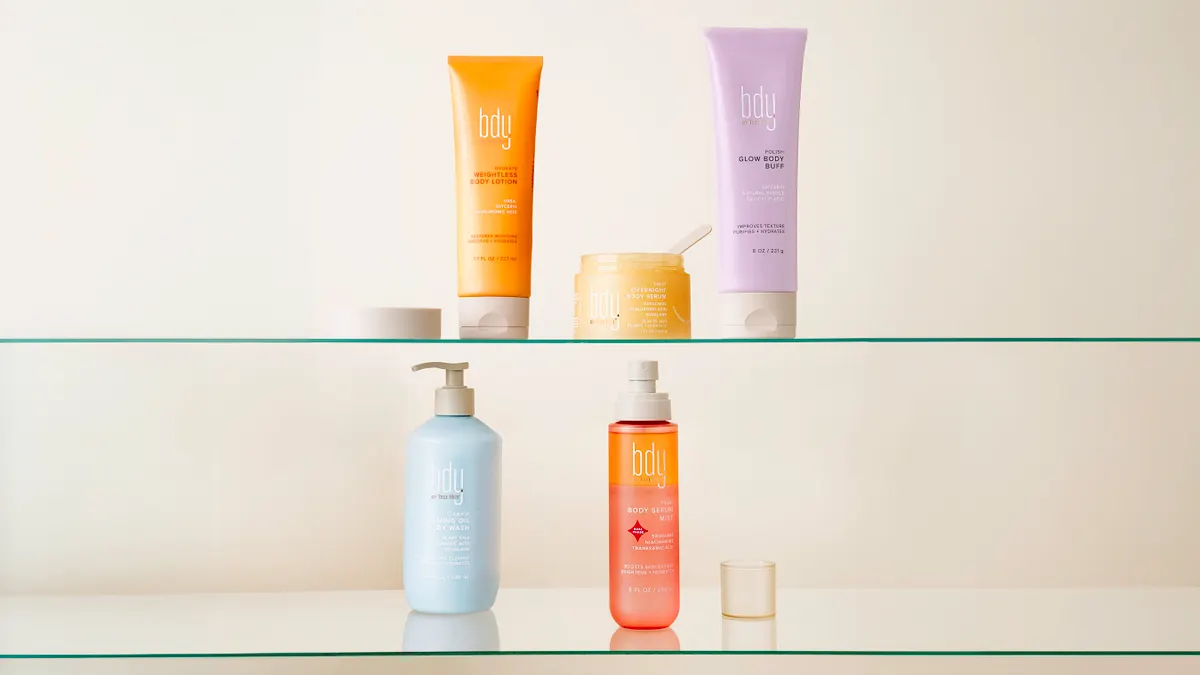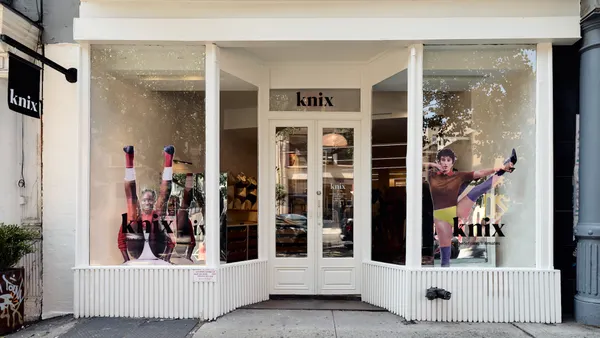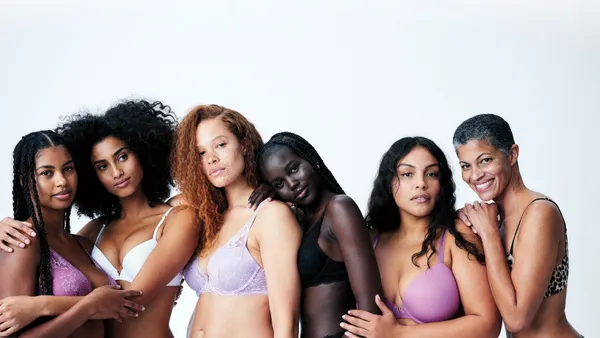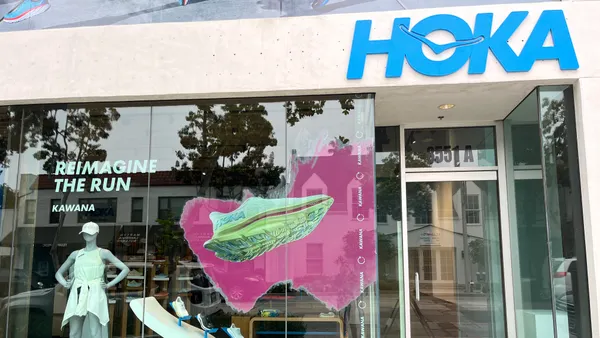Dive Brief:
- Naterra, the company behind skin care brand Tree Hut, has launched a new body care brand dubbed Bdy, per a company news release Tuesday. Naterra views Bdy as the “grown-up evolution” of Tree Hut, which is lower priced than the new brand.
- Bdy, which debuted exclusively this week at Ulta Beauty’s stores and website, seeks to fill a white space in the market calling for affordable, high-quality products. The brand takes its cues from the skin care market, touting ingredients that combat common concerns like dryness, uneven tone and texture.
- The initial collection of Bdy, priced between $12 and $29, consists of seven SKUs including body scrub, body wash, body serum mist, overnight body serum and body lotion. Products are lightly scented with notes of bergamot, green tea, lotus blossom and musk, per the release.
Dive Insight:
Tree Hut’s “big sister,” Bdy, is focused on the same category but uses skin care positioning and modern packaging to offer an “elevated” assortment without the prestige price tag, per the company. Developed for sensitive skin types, Bdy seeks to differentiate itself through “nourishing” ingredients that are dermatologist tested, vegan, paraben-free and cruelty-free.
"We're proud to bring Bdy to life — a brand born from a clear vision: to create elevated, sensorial formulas that deliver results, while remaining effortless to use every day," Chief Marketing Officer Luis Garcia said in a statement. "We focused on skincare-inspired ingredients, thoughtful textures, and dermatologist testing to ensure every product delivers real results without overcomplicating the routine. Bdy reflects how we see the future of body care — effective, accessible, and made for every body."
The Bdy brand enters a competitive beauty market that is often touted as recession-proof. Over the next five years, the beauty sector is expected to grow by a compound annual growth rate of 5%, according to a report by TD Cowen. Nevertheless, Ulta executives in May warned that the category is not “immune to consumer pressure,” especially given the current tariff environment. The retailer saw sales rise 4.5% in the quarter following a tough 2024.
In a May report by Circana, the mass market segment of the beauty industry outperformed prestige for the first time in several years. The prestige skin care category was down 3% in dollars, but units sold increased 1% for Q1, per that report. Mass skin care grew by both dollars and units in the quarter. Skin care has been a bright spot in the industry over the past few years, leading to the “skinifcation” of other beauty categories.
As the appetite for beauty products continues to grow in the U.S., mass market retailers like Walmart and Target have increased their offerings in the space. Amazon and TikTok have likewise been increasing their beauty market share.












